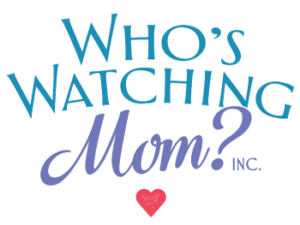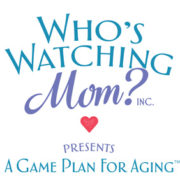Seniors, Protect Yourself from Scams, Fraud, and Abuse!
/in Blog /by whoswatchingmomStudies show that the losses from the financial exploitation of seniors are staggering. True Link Financial reported that as of 2015, annual losses from elder scams were nearly $37 billion, while others estimate economic losses are in the millions of dollars per year.
The exact amount is not important. If you fall victim to senior scams, identity theft, or overreaching by trusted caregivers or family, the losses of even a part of your “nest egg” can be devastating. Seniors who are victims will not be able to make up for such losses: investments take time. Seniors cannot accumulate returns needed to replace the losses. You usually cannot recover the stolen funds from perpetrators who are often unknown and even in other countries.
Even though there are legal remedies to deter scammers and recover losses, these are time consuming and burdensome for seniors to prosecute. Often senior victims do not report the scams and even when they do, dementia and disabling conditions often create problems of proving the claim. These practical difficulties only worsen with age.
All is not lost though. If you act before suffering such losses, you can minimize their risks. By establishing advance safety measures to lessen the risks, the chance that you will be a victim can be greatly reduced. Unfortunately, there is no absolute safeguard applicable to everyone, but there are planning options available.
How do I protect myself or my parents from scams and fraud?
- Obtain second opinions about large expenses or investments before agreeing to them;
- Require your financial agent (i.e., your attorney-in-fact or trustee) to report and account to you or other trusted persons about their activities done on your behalf;
- Designate and require more than one financial agent who must act together: “two heads are better than one”;
- Limit the power of your financial agents to make gifts to themselves;
- Permit an Independent trustee to veto or withhold payments that are not in your best interests or consistent with your stated life goals;
- Allow a third party (without access to your funds) to monitor your accounts, asset holdings, and gifting to watch for unusual large withdrawals, payments, or gifts;
- Designate a third party fiduciary to manage your affairs for you if you are unable to manage them by yourself, with written instructions that they are mandated to follow; or
- Separate the role of caretaker from the roles of fiduciary handling financial matters;
- Establish a separate entity to own your assets and income with tax reporting numbers different from your social security number.
These are only a few of the advance safety plans that you can put into place.
Although there is no one 100% fraud-proof solution for every person for every situation, it is important that you act to establish a prevention plan that is appropriate for you before it is too late. Your professional advisors and attorneys can help to determine the structure or structures best suited for your situation.
Do not wait for something to happen to you: proactively address the risk before suffering devastating losses from which you cannot recover.
The advisors at Who’s Watching Mom?, Inc. can meet with you, learn your situation, and help you determine the most appropriate protocol for your situation.
Get more information at Senior Linkage Line
Preserving Your Dignity as You Age: Goal Setting for Respect, Involvement and Care
/in Blog /by whoswatchingmomRecently, a group of gerontologists surveyed a number of seniors asking them what was most important to them as they age. The gerontologists reported that enhancing and preserving dignity was most important. The researchers identified three primary themes that were represented in their survey responses: “respect and recognition,” “participation and involvement,” and “dignity in care.”
Preserving dignity will become even more important as people live longer. “With the coming demographic avalanche of Boomers reaching their 60s and the over-80 population swelling,” our legal systems, health care systems, and social safety nets will face ever-increasing difficulties preserving the dignity of the individual while simultaneously ensuring the safety and well-being of the aging population. This tension between individuality and safety impacts caregiving, disability planning and estate planning.
Although society has made some progress in striking a balance between safety and independence, it is still largely up to individuals to make plans themselves that preserve their independence and dignity through the aging process.
Plans include insisting that legal documents, like wills, powers of attorney, and trusts, include individualized provisions that preserve the creator’s dignity.
Steps to take to plan for and ensure future independence and dignity through the aging process include the following:

1) Create a Day-in-the-Life Statement
Determine and clarify What Your Purpose, Values and Goals for Your Life and Legacy are: before visiting with your professional advisors, write down a clear statement of those things or endeavors you believe are most important in your life. By stating such goals, your advisor can craft mechanisms, terms, and processes to preserve the core principles and activities of your life.
It is easy to state that you should clarify goals and core beliefs, but you may wonder how to start doing this. One method to start is to describe on one page how you spend a normal day. This narrative Day-in-the-Life can then be edited over time to reflect what is core to your individual meaning. After you make final edits to your Day-in-the-Life statement, it can provide a baseline of your life to which health care providers, therapists, or others can compare an assessment of your later behavior.
For example, I have always been forgetful and if my advisors know this due to my statement about it, behavior in later life involvement forgetting where my car keys, eye glasses, or cell phone might be should not raise alarms that I may be suffering from dementia or another chronic type of illness and that being somewhat forgetful is part of my baseline behavior. I realize that dementia may involve much more drastic deficits in thinking than mere forgetfulness, but my example may help describe the purpose of the Day-in-the-Life exercise.
2) Create an aging Goals Statement
You can also review the Day-in-the-Life statement to deduce things about your life that are core beliefs or activities that you can then put into a Statement of Goals. Each individual uniquely has his or her own beliefs and core goals, but generally, my clients have identified the following categories that you may find helpful:
Place to Call Home In the Event that You Cannot Manage Your Affairs.
While the majority of people express a wish to stay at home and age-in-place, it is important to think about all of the maintenance, cleaning, housekeeping, laundry, and personal activities you do each day because you reside in your home or apartment. Are these activities realistic if you reach a stage in life when you are either tired of such every-day necessities or due to aches, pains, diminishing balance or mental acuity, or you need help doing these things? What if you cannot drive safely? Will you be isolated in your home? On the other hand, perhaps due to a chronic illness or condition, your home may be your sanctuary from an increasing threatening outside world? Whatever your feelings are, it is important to consider if your place of abode is important to preserving your dignity.
Religious Beliefs or Rites.
You may have religious or spiritual beliefs and practices that are core to your being and should be preserved for you and perhaps your loved ones should you suffer incapacity or after death. If so, write these down so that your advisor understands this and can design plans that account for this.
Chronic Illness or Condition.
If you live with a chronic illness, disease, or condition (i.e., cancer, diabetes, mental illness, early onset dementia, etc…), describe any such diagnosis, its normal symptoms, and prognosis, so that plans can be adjusted appropriately to accommodate your needs and preserve as much control for you as you desire.
Your Use of Non-western, Alternative, Holistic, or Non-FDA-approved Medical Treatment or Medicines.
Either due to religious beliefs or merely personal preferences, you may currently utilize or would utilize some type of non-traditional health care or medical treatment, or take certain non-traditional medicines. If this is th 8re case, it is necessary to describe such practices so that your advisors know about this and can adjust authorizations in powers of attorney, trusts and living wills to accommodate such desires.
What Makes You Get Out of Bed Each Day?
Whatever your “purpose” in life happens to be, unless your advisors and loved ones know what it is, plans and practices will never be sought out to preserve this for you. In my case, I find mental exercise and learning extremely enjoyable and hope that I am able to participate in activities fostering learning for my remaining time. I have instructed my loved ones to explore appropriate activities for me to engage in should I not be able to do this myself. Every person, I believe, has some such activity or “purpose.” This could be music, education, physical activity, socializing, mentoring, cooking, gardening, art, pet care, or something else.
What Does it Mean to “Provide” for Loved Ones?
Most people have some way in which they would like to be remembered. What is the “legacy” you desire? When working with estate planning advisors and financial advisors, it can be very helpful for them to understand specifically how it is that you desire to “provide” for spouses, partners, children, grandchildren or other loved ones. In some way, most people do desire this. But even if you do not have such persons to “provide” for, you may have a philanthropic wish or wishes. You can be as specific as your desire, provide training for loved ones about investments, wise use of funds, lifestyles, or education if you wish.
I hope that the foregoing assists each of you when engaging in planning for your life and death or for the caregiving needs of others and that it will raise issues for you to consider so that you can act to preserve your dignity in life or after your passing.
At Who’s Watching Mom?, Inc., we help our clients to identify and clarify their goals that we include as the start of a Game Plan for Aging™ or a Game Plan for Caregiving™. So if you feel overwhelmed by the task of goal setting, please contact us. Feel free to respond with your comments too.



